We’ve all heard the saying, “A team is only as strong as its weakest link.”
This idea that a team draws its strength from all team members, including it’s most junior employees, can be hard for companies to accept — especially those that have taken measures to recruit top-tier talent.
Yet, what if the problem lies not in the team members themselves being weak but with the work culture inhibiting employees from engaging with professional growth and learning opportunities?
According to the 2022 Workplace Learning & Development Trends report, 86% of HR managers believe training is key for retaining talent, while 76% of employees report being more likely to stay with a company that offers continuous training.
To achieve growth in 2023 and beyond, employers need to consider the role that continued learning and employee enablement play in building a resilient (and well-retained) business team.
What is employee enablement & how does it relate to continued learning?
Employee enablement is the process of giving a team the tools, resources, and education needed to collaborate more effectively with others and excel in their positions.
At its core, employee enablement is meant to encourage employees to expand their expertise beyond a specific role or department. A fully-enabled employee should feel confident in their knowledge of the company and which responsibilities are held by each department of the company.
Continued learning — the process of offering ongoing educational support, resources, and training — is a foundational component of employee enablement. Through continued learning, employees can adopt additional skill sets, which boils down to being better equipped to help the company in whichever regard is needed.
3 key benefits of employee enablement for business growth
Employee enablement provides several advantages for employers to expand their professional reach and maintain a high-quality, multi-talented business team. That boils down to more productive employees and greater business growth.
Here are three key benefits of employee enablement that can enhance business growth:
1. Diversified perspectives
Employee enablement builds confidence in team members, making them feel more empowered to share their thoughts and opinions on particular subjects. As a result, business leaders have a more diverse pool of perspectives to consider, revealing new opportunities for potential growth or improvement.
Imagine this scenario: Your business has recently noticed a drop in employee retention for new hires, leading you to suspect there are problems occurring in your onboarding process. By embracing employee enablement, you can make your team feel more comfortable in sharing their criticisms with you, allowing you to ask them highly specific questions about the onboarding process and the flaws they may see in it.
Without employee enablement, a team member (especially a junior one) may feel hesitant to provide feedback outside of the domain or specialty that their role covers. By contrast, fully-enabled team members have a better overview of a company as a whole and are generally more willing to provide thoughtful insights.
This process of building confidence in your employees is also a key component to ensuring all voices are heard equally and fairly within your workplace.
As Spotify Senior Product Manager Alex Krupp states:
“When we think about women and people of color who [are] more likely to underrate themselves [who] may be afraid to raise their hand as being the expert who can teach something. We really want to cut through that and empower people to share their knowledge with the rest of the company.”
2. Codified knowledge
Creating a united business team capable of scaling collaboratively during times of growth is critical.
To establish this unification, it is important to have a certain level of standardization when it comes to business knowledge. Codifying knowledge refers to this process of standardization, enabling businesses to create a centralized knowledge base that all employees can refer to in order to share processes and operating procedures.
For example, a software company can be made up of many departments beyond development teams, and often, non-development teams may not have as in-depth an understanding of the software products. However, for the company to succeed, it might be necessary for team members to understand how the product operates, what it does, and what it aims to accomplish.
Establishing this shared knowledge base is an excellent example of codifying knowledge. Codifying knowledge can help employees benefit from centrally-maintained documentation, clearer lines of communication that result from an entire business team having a shared understanding of products, and more standardization of business practices.
3. Enhanced work culture
If business units operate like islands, collaboration between departments can become incredibly difficult and create disjointed operations. To ensure continued success, product, marketing, HR, management, and finance people all need to interact consistently.
When business departments codify their knowledge, communicate openly with one another, and collaborate, that boils down to more effective management—which leads to business growth and resiliency. In Adobe’s 2022 report The Future of Time: Redinding Productivity During Uncertainty, 78% of employees report they would stay in their current roles if given a more supportive work culture. 15% of employees said that they are less likely to look for a new job if their current job aligns with their values.
The report further reveals that roughly two-thirds of managers feel that senior leadership should provide better tools and resources to meet the expectations of employees.
Enabling employees at all levels to collaborate more easily and effectively opens new channels of communication, allowing employees to better express their needs and be heard by leadership.
Final thoughts: how PlusPlus gelps businesses enable employee enablement
Turning employee enablement into a competitive advantage requires the right digital tools and resources.
At PlusPlus, our employee enablement and learning platform offers the technical capabilities you need to improve your approach to continuous learning and boost talent retention. Not only can our platform assist in driving business growth, but it can also ensure you retain your best employees.
Additionally, PlusPlus helps employers establish a set of best practices for personalizing continued learning and training sessions to meet the needs of individual team members. We enable you to offer blended learning experiences that give your team the exact tools and resources they need to thrive.
With PlusPlus, you can create an approach to employee learning and enablement that is flexible, with the ability to provide both group and one-on-one learning opportunities.






